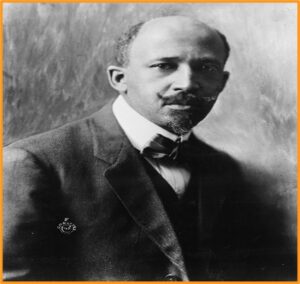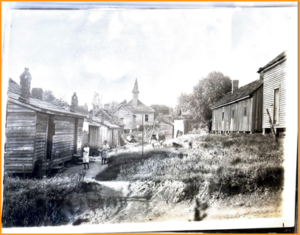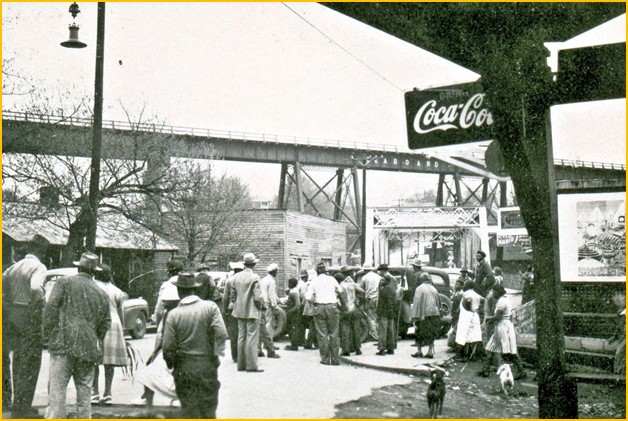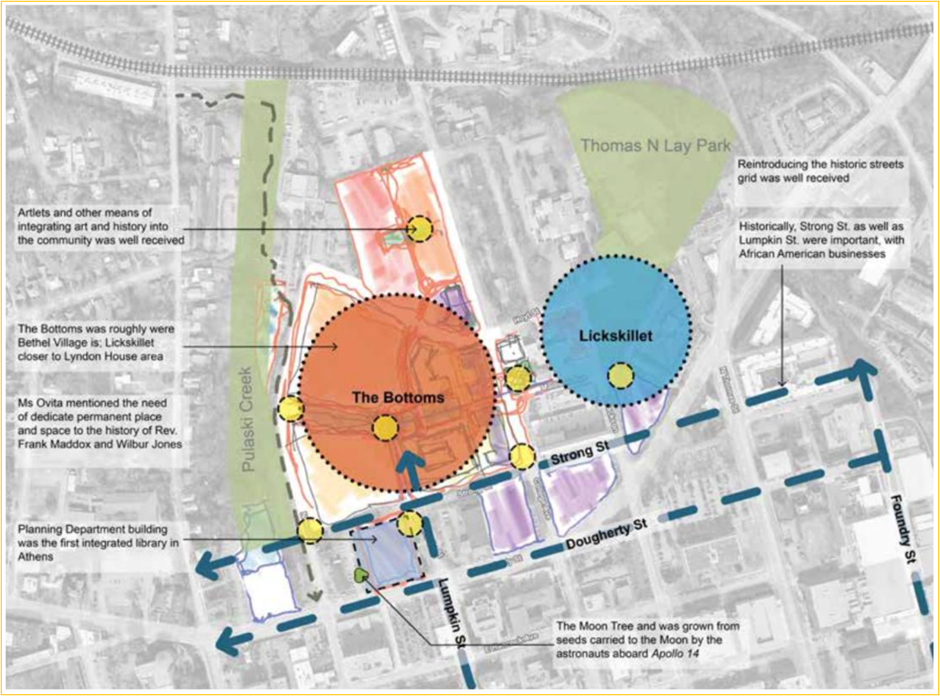The history of Athens’s Lost Neighborhoods

W.E.E.B. DuBois
The 20th Century in Athens opened with the country’s most important black intellectual, W.E.B. Du Bois, visiting to deliver a speech to Athens’ black educators in the fall of 1900. In the speech, Du Bois formulated ideas that would compose his landmark The Souls of Black Folk, a book particularly prophetic about the black experience in Athens. Du Bois would open that book with a question to black Americans, appearing twice in the first paragraph: “How does it feel to be a problem?

African American Neighborhoods in and around the downtown area were home to tightly knit communities. Photo from the Hargrett Rare Book and Manuscript Library
Black poverty was a problem for whites, despite the post-emancipation socio-economic order being in many ways a continuation of the pre-war days. The Rev. Archibald Killian, born in Athens in 1934, explains how each affluent white neighborhood had a black neighborhood nearby to house domestic help. “The Bottoms” located along College Avenue and Lumpkin, north of Dougherty, was one such neighborhood. Black and poor Athenians found themselves just put some place, only to face callous upheaval when that impoverished neighborhood got in the way of wealth and progress for whites.
In these neighborhoods flourished vibrant communities of color with strong artistic, analytic, successful families. Neal Pattman, a now famous blues musician who is honored in perpetuity for his contributions to music on the Athens Music Walk of Fame, lived in The Bottoms. Another musician honored on the Athens Music Walk of Fame is Hall Johnson, whose grandparents were purchased as children and owned in bondage by the Ware family. Johnson is representative of the amazing minds that were born in this generation. These communities molded leaders, writers, doctors, businessmen, and politicians, that are often forgotten when discussing Athens’ history.

People gathered on the bridge at what is now the intersection of North Avenue and Martin Luther King Parkway. Photo sourced from the Growing Up In Athens Facebook group.
African American Neighborhoods Demolished in the 20th Century
In the mid-20th century, African American neighborhoods felt the brunt of slum and blight clearing, often called urban renewal. The Bottoms was one such area, identified by the federal Urban Renewal and Model Cities programs, along with more than 300 homes and businesses that were torn down in Athens during the 1960s and 1970s. Other African American neighborhoods in Athens, such as Linnentown and The Waterfront, were also completely razed. According to research conducted by Athens Clarke County Mayor Kelly Girtz’s office, “Urban Renewal in The Bottoms area displaced 139 families of color, 94 white.” Altogether, urban renewal displaced more than 300,000 families nationwide between 1950 and 1966, disproportionately people of color.

North Downtown Athens Master Planning Study, p. 53. March 2, 2021, JHP Architecture/Urban Design
Present Day
In February of 2021, Mayor Girtz issued a proclamation of apology to former residents of Athens’ Urban Renewal districts, their descendants, and to all Athenians, a deep and sincere expression of apology and regret for the pain and loss stemming from this time, and a sincere commitment to work toward better outcomes in all we do moving forward. He also made a promise that new redevelopments not only will not displace current residents but will increase the affordable housing stock in this city.
Today, we can see a brighter future for the area once known as The Bottoms. The Athens Housing Authority (AHA) recently purchased Bethel Midtown Village, which is located on the original site. This long-neglected neighborhood will soon be reinvigorated with a mixed-income, mixed-use development that will be affordable for its current residents and a promise that their rent will not change, no matter what. In the event of temporary displacement during construction, Bethel residents will be moved at the AHA’s expense, Executive Director Rick Parker vows, with even utility and cable hook-up costs being covered. “No resident will be out a dime,” he says. With an increasing need for affordable housing in Athens, this redevelopment, along with others that are geared towards affordability, will help lower-income Athenians afford housing and help relieve the cost burden on many families. Learn more here.
